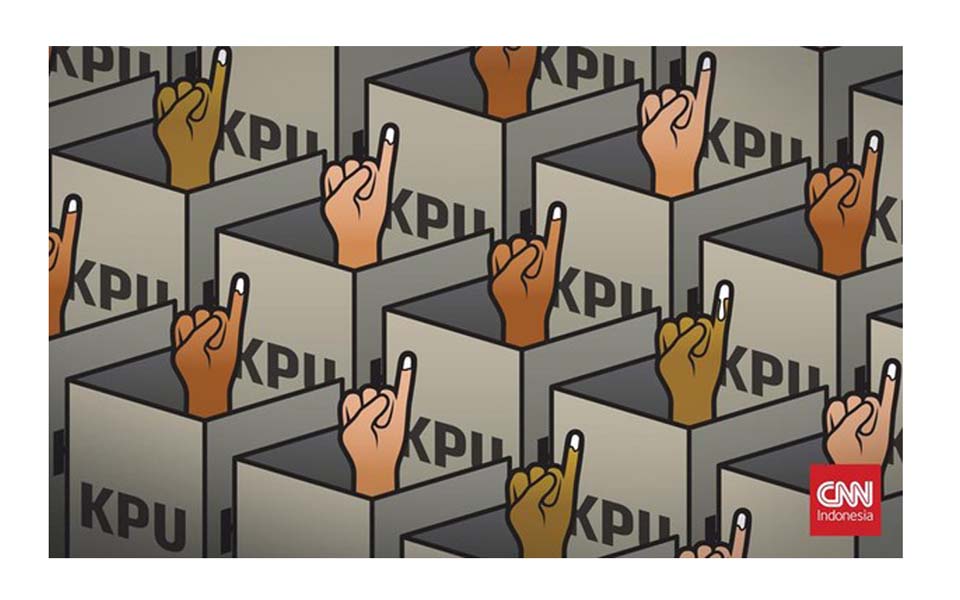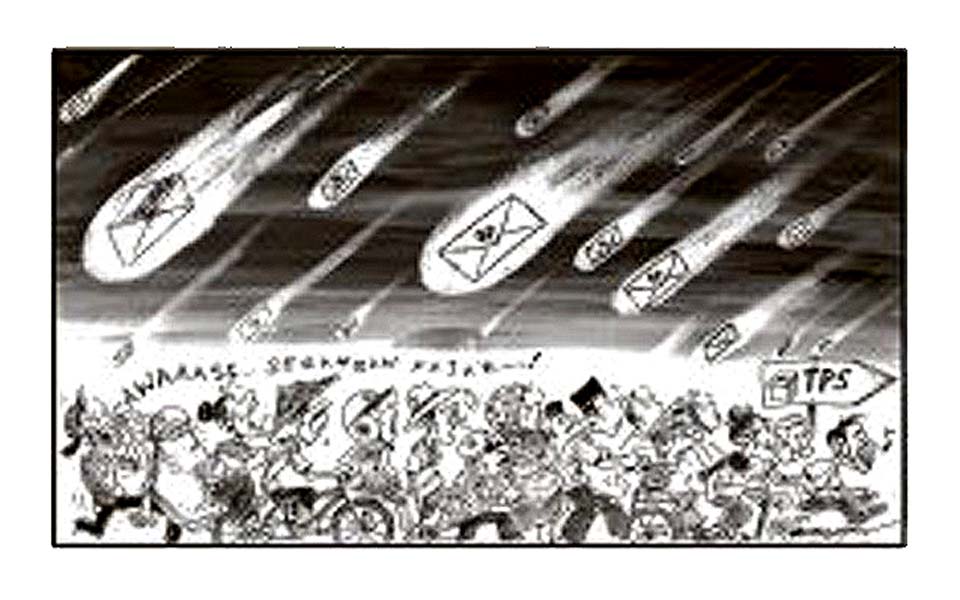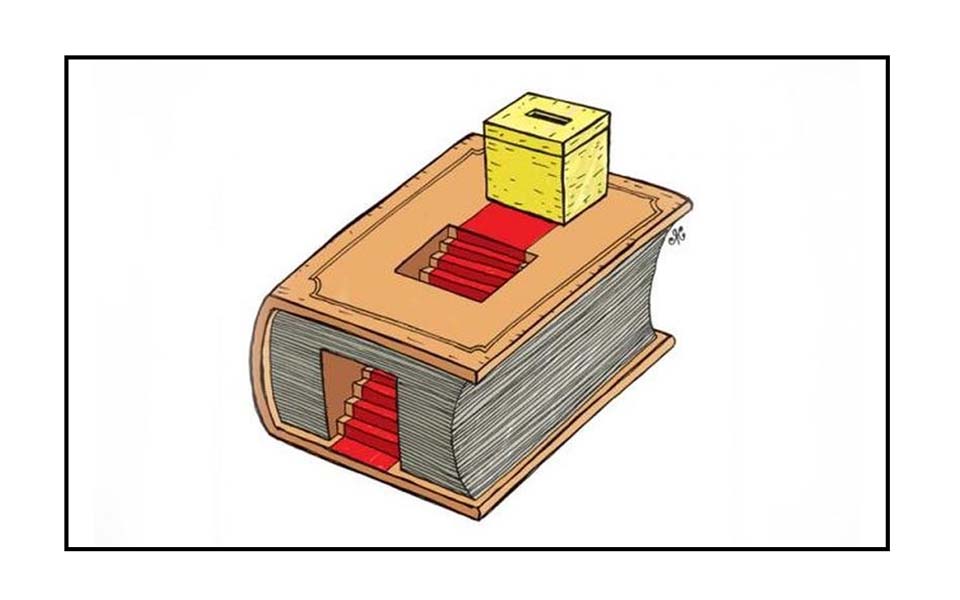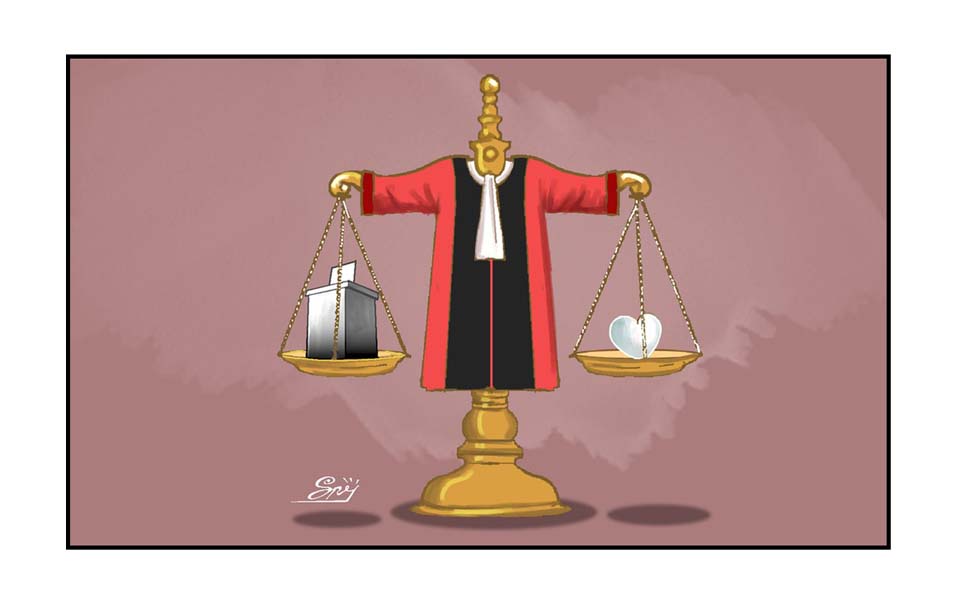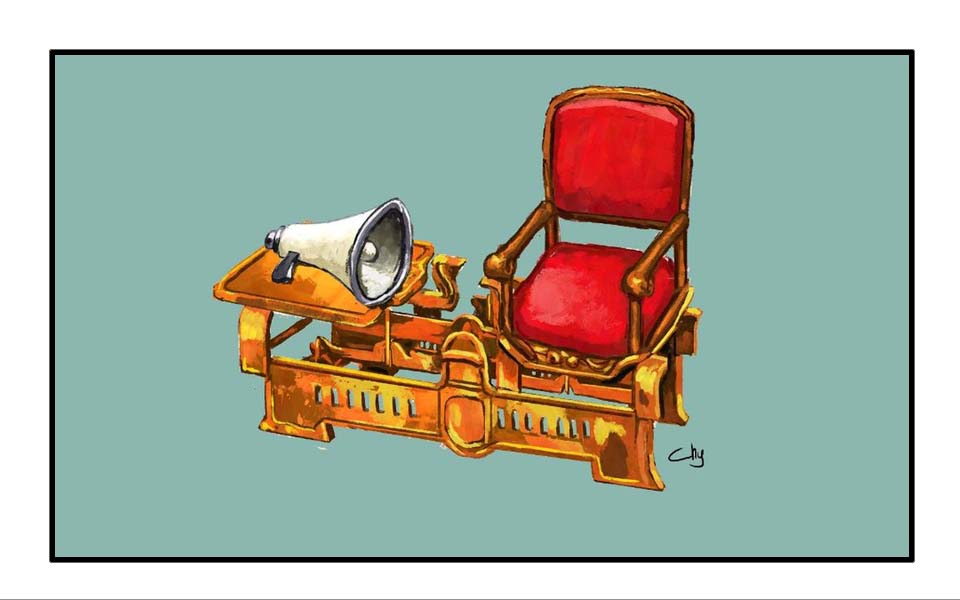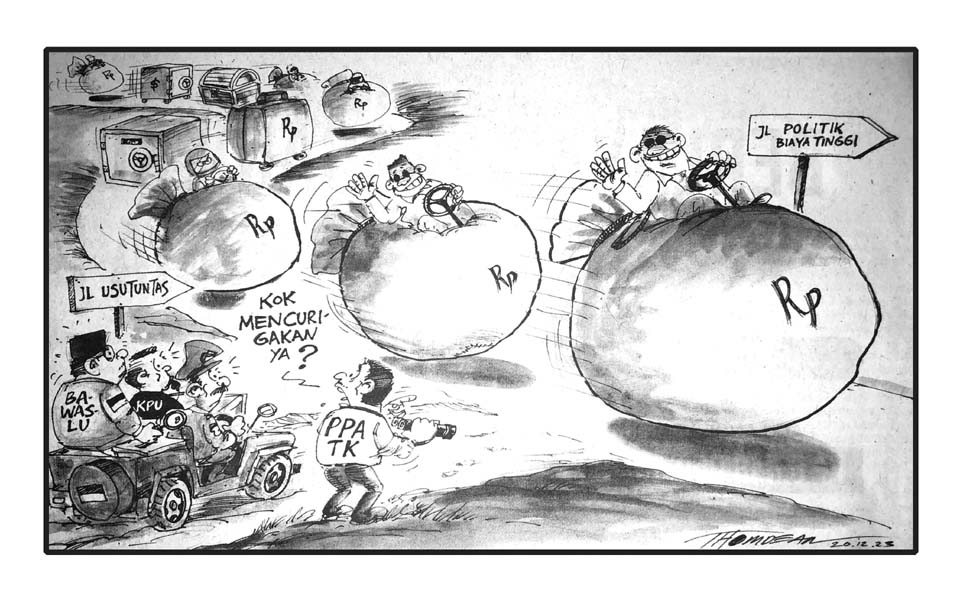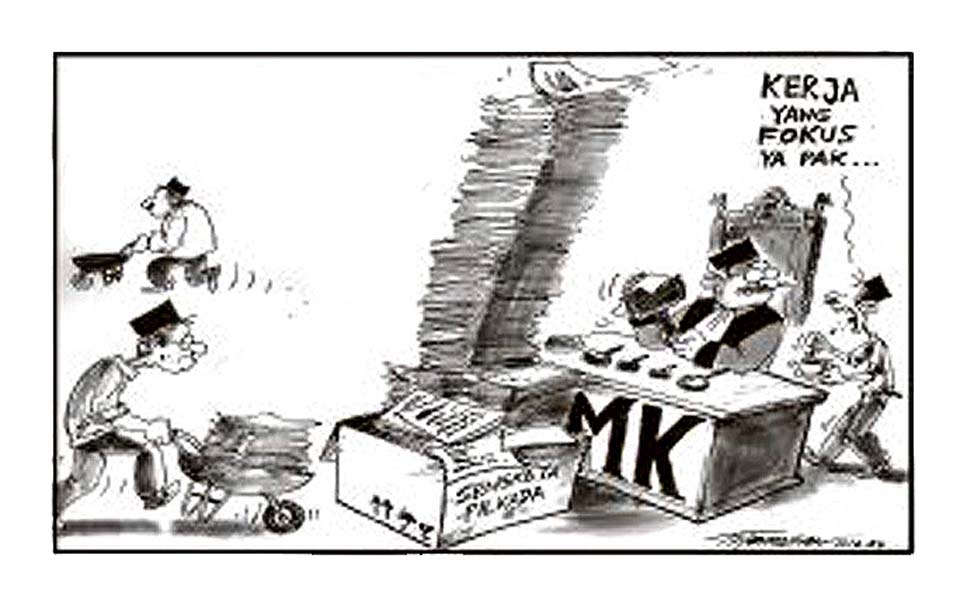
Man: Focused work right Mr... (box reads "electoral disputes")
As of December 14, the Constitutional Court (MK) has received 283 regional election (Pilkada) dispute cases. This number is expected to rise as the registration period for election disputes remains open until December 18.
According to the Constitutional Court's official website, the majority of cases – 218 – are related to the election of regents followed by 49 cases for mayoral elections and 16 for gubernatorial elections.
Constitutional Court Chairperson Suhartoyo stated that the deadline for filing an electoral dispute is three days after the vote count results are announced by the General Election Commission (KPU). The KPU is scheduled to announce the official vote counts on December 16.
Although the court has not yet set the date for the first hearings, Suhartoyo indicated that they would likely begin in early January 2025 and verdicts can be expected to be delivered in February and March, 2025.
The regional elections were also marked by a low voter turnout. According to the KPU, only 71 percent of eligible voters nationwide cast votes on November 27. This is a significantly lower turnout than for the 2018 regional elections when 81 percent of voters took part.
In major provinces such as Jakarta, Banten, West Java and North Sumatra, the figures plunged drastically. In the capital for example, the participation rate fell to 57.52 percent – 20 percent lower than the previous election.
The KPU and politicians have suggested that voters are suffering election fatigue, given that this is the first time Indonesia has held legislative, presidential and regional elections in the same year. Many others however say the main reason people abstained is because they no longer see elections as an avenue to channel their political aspirations.
This was best illustrated by the low election turnout in Jakarta where political elite orchestrations prevented the most popular gubernatorial candidates from running. Instead, the electorate was presented with candidates that reflected the political battle between President Prabowo Subianto's Onward Indonesia Coalition (KIM Plus) and the largest party in the legislature, the Indonesian Democratic Party of Struggle (PDI-P).
National elite competition was also evident in key electoral provinces on the islands of Java, Sumatra and Sulawesi, where local elections were no longer about electing the most qualified and representative leaders, but rather, a political gambit by the political elite to expand their political capital for the next legislative and presidential elections.
[Based on two articles by Tempo and Indonesia at Melbourne.]





